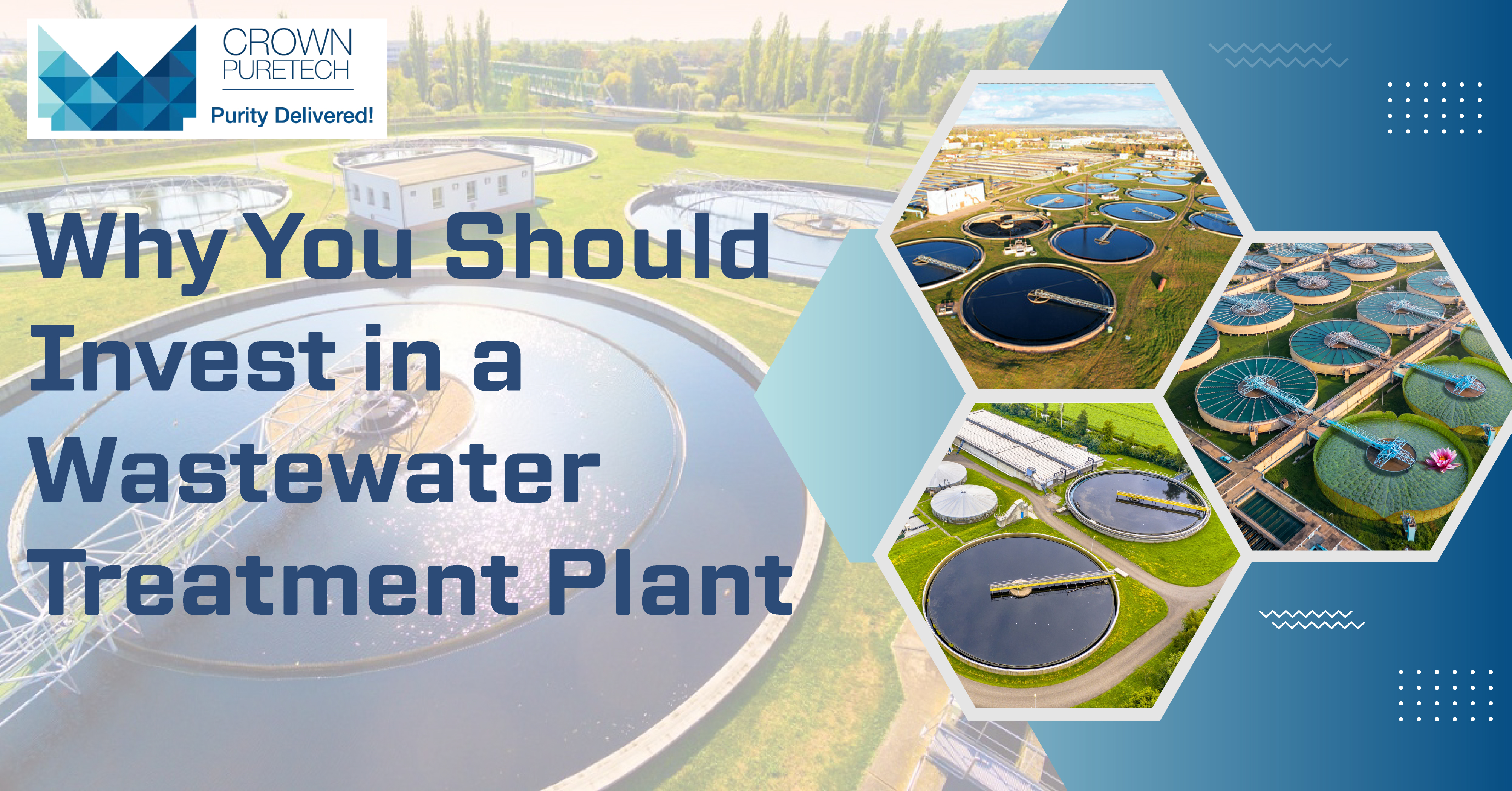
Why You Should Invest in a Waste Water Treatment Plant

Why You Should Invest in a Waste Water Treatment Plant
Introduction
There are several advantages for businesses and the environment when investing in wastewater treatment facilities. By treating and recycling wastewater, these systems contribute to resource conservation and a large decrease in water contamination. Waste Water treatment provides adherence to strict laws while safeguarding regional ecosystems, a response to the growing worldwide concerns regarding environmental effect. Because hazardous effluents can damage the environment, Effluent Treatment Plants (ETP) are essential in sectors including industry. I006Edustries help to create a cleaner environment and sustainable growth by cleaning these effluents and cutting down on operating costs.
Types of Waste Water Treatment Plants
1. Conventional Waste Water Treatment Plants
Usually, these plants have three treatments: primary, secondary, and occasionally tertiary. They eliminate pollutants, organic materials, and suspended solids. For metropolitan areas or industrial zones with significant water consumption, this is the perfect answer.
2. Effluent Treatment Plants (ETP)
The primary function of effluent treatment plants, or ETPs, is to handle wastewater produced by the chemical, textile, and pharmaceutical sectors. Their goal is to get rid of harmful substances such as high levels of COD (Chemical Oxygen Demand), BOD (Biological Oxygen Demand), and other hazardous materials. Businesses can drastically reduce pollutants and comply with environmental rules by investing in an effluent treatment facility.
3. On-Site Treatment Plants
For smaller establishments or isolated sites, these modular plants are constructed on-site. They offer economical and effective wastewater treatment options that do not require substantial infrastructure or large-scale operations.
Benefits of Waste Water Treatment Plants
1. Environmental Protection
Waste Water treatment plants play a vital role in minimizing water pollution by cleaning and recycling water before it re-enters natural water bodies. This prevents harmful chemicals and toxins from entering the ecosystem.
2. Regulatory Compliance
Stricter rules are being imposed by governments on wastewater management. Purchasing from a manufacturer of wastewater treatment plants, such as Crown Puretech, provides that businesses adhere to these rules and prevents expensive fines and harm to their reputation.
3. Resource Recovery
Modern wastewater treatment plants have the additional benefit of recovering important resources such as fertilizers and energy from wastewater. This helps create a circular economy by converting garbage into goods that can be used again.
4. Cost Efficiency
Even though effluent treatment plant startup costs might appear high, they eventually result in long-term savings. Industries can lower their overall operating expenses and water usage by reusing and recycling treated water.
Key Components of Waste Water Treatment
1. Aeration System
In order to encourage microbial development, and help in the breakdown of organic materials, air is introduced into the water through this procedure. Systems for agitation play an important part in lowering BOD and COD levels.
2. Clarifiers
These are the kind of tanks used to filter particles out of liquids. In order to produce cleaner, safer-to-use water, clarifiers make sure that impurities get removed during the treatment process.
3. Filtration Systems
To get rid of contaminants and suspended particles from water, filtration is necessary. Depending on the kind of wastewater being treated, several filtering methods like sand, membrane, and activated carbon filtration are utilized.
Factors to Consider When Investing in a Waste Water Treatment Plant
1. Capacity and Scale
Determine the volume of wastewater your plant will need to treat daily. This helps in selecting the right size and technology for your treatment plant.
2. Regulatory Requirements
Different regions have specific water quality standards that need to be met. Make sure that your wastewater treatment plant manufacturer is knowledgeable about these standards and can help you comply with them.
3. Maintenance and Operational Costs
While initial investment is important, operational costs over the plant’s lifecycle should also be considered. Choosing energy-efficient and low-maintenance technologies can save significant costs in the long run.
4. Sustainability Goals
Many companies are now focusing on sustainable practices. If your business has sustainability goals, investing in an eco-friendly wastewater treatment system will contribute to these objectives.
Waste Water Treatment Solutions for Different Industries
1. Pharmaceutical Industry
The pharmaceutical industry generates large amounts of toxic effluents, making effluent treatment plants (ETP) important for this sector. Crown Puretech specializes in designing systems to handle high BOD and COD levels efficiently.
2. Textile Industry
The textile industry produces wastewater containing dyes and chemicals. Our wastewater treatment plant manufacturer solutions offer specialized systems to remove color, reduce TDS, and neutralize harmful chemicals.
3. Food and Beverage Industry
This industry requires high standards of hygiene, making it important to treat wastewater efficiently. Crown Puretech offers customized solutions to treat organic matter and make sure compliance with strict health regulations.
Conclusion
Crown Puretech's innovative and sustainable solutions, businesses can achieve compliance, improve efficiency, and contribute to a cleaner future. Investing in a wastewater treatment plant is important for industries that aim to reduce environmental impact and operational costs. By choosing Crown Puretech, you're investing in modern technology that delivers reliable, high-quality treatment for your industry’s specific needs.
For more information on effluent treatment plants and wastewater treatment plant manufacturers, call us at +91-9898779911 or email us at info@crownpuretech.com. Let us help you explore the best solutions for your water treatment requirements.
